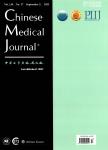Berberine might block colorectal carcinogenesis by inhibiting the regulation of B-cell function by Veillonella parvula
Berberine might block colorectal carcinogenesis by inhibiting the regulation of B-cell function by Veillonella parvula作者机构:Division of Gastroenterology and HepatologyShanghai Institute of Digestive DiseaseNHC Key Laboratory of Digestive DiseasesState Key Laboratory for Oncogenes and Related GenesRenji HospitalShanghai Jiao Tong University School of MedicineShanghai 200001China Department of General SurgeryRenji HospitalShanghai Jiao Tong University School of MedicineShanghai 200001China Department of PathologyRenji HospitalShanghai Jiao Tong University School of MedicineShanghai 200001China
出 版 物:《Chinese Medical Journal》 (中华医学杂志(英文版))
年 卷 期:2023年第136卷第22期
页 面:2722-2731页
核心收录:
学科分类:1002[医学-临床医学] 100214[医学-肿瘤学] 10[医学]
基 金:supported by the grants from the National Key R&D Program of China(No.2020YFA0509200) the National Natural Science Foundation of China(Nos.82002622,81830081,31970718,and 81972203) the Shanghai Municipal Health Commission,Collaborative Innovation Cluster Project(No.2019CXJQ02) the Youth Project of Shanghai Municipal Health Commission(No.20194Y0096)
主 题:Colorectal cancer Berberine Gut microbiota Intestinal immune pathway B Lymphocytes
摘 要:Background:Colorectal carcinogenesis and progression are related to the gut microbiota and the tumor immune microenvironment.Our previous clinical trial demonstrated that berberine(BBR)hydrochloride might reduce the recurrence and canceration of colorectal adenoma(CRA).The present study aimed to further explore the mechanism of BBR in preventing colorectal cancer(CRC).Methods:We performed metagenomics sequencing on fecal specimens obtained from the BBR intervention trial,and the differential bacteria before and after medication were validated using quantitative polymerase chain reaction.We further performed Apc Min/+animal intervention tests,RNA sequencing,flow cytometry,immunohistochemistry,and enzyme-linked immunosorbent assays.Results:The abundance of fecal Veillonella parvula(V.parvula)decreased significantly after BBR administration(P=0.0016)and increased through the development from CRA to CRC.Patients with CRC with a higher V.parvula abundance had worse tumor staging and a higher lymph node metastasis rate.The intestinal immune pathway of Immunoglobulin A production was activated,and the expression of TNFSF13B(Tumor necrosis factor superfamily 13b,encoding B lymphocyte stimulator[BLyS]),the representative gene of this pathway,and the genes encoding its receptors(interleukin-10 and transforming growth factor beta)were significantly upregulated.Animal experiments revealed that V.parvula promoted colorectal carcinogenesis and increased BLyS levels,while BBR reversed this effect.Conclusion:BBR might inhibit V.parvula and further weaken the immunomodulatory effect of B cells induced by V.parvula,thereby blocking the development of colorectal tumors.Trial Registraion:ClinicalTrials.gov,No.NCT02226185.



